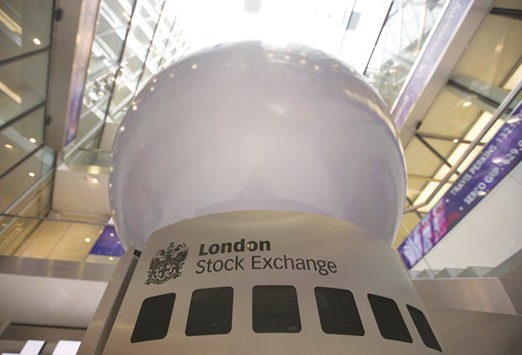Global stocks rose yesterday, with the London market now in a much better place than before the outcome of Britain’s shock EU vote, and others were firmly on the road to recovery.
Asian stocks led the way, ending the week with another rally on optimism that central banks globally will step up to support growth in the face of uncertainty caused by Britain’s vote.
Wall Street was also higher as attention focused away from Brexit and towards solid US manufacturing data and auto sales.
After the shock of the referendum result sent world markets into initial free fall last Friday, they have surged over the past week as authorities moved to soothe concerns another rout was imminent.
“A massive increase in risk aversion in the aftermath of the UK vote was followed by encouraging signs of recovery,” analysts at UniCredit said.
The benchmark London FTSE-100 index stood 1.1 higher at 6,577.83 at the close, representing a jump of over 7% over the week, and well above its 6,338.10 level on June 23, before the British result was published.
The Paris and Frankfurt stock markets were also higher, but remained below their pre-Brexit vote highs.
On Thursday, Bank of England boss Mark Carney became the latest to provide assurances, indicating policymakers could embark on fresh monetary easing — raising the possibility of a cut in rates.
Carney, who had urged Britain to vote to stay in the EU, said “the economic outlook has deteriorated and some monetary policy easing will likely be required over the summer”, although he said there were limits to what the bank could do.
His comments sent the pound tumbling Thursday, but provided the equity market with what Hewson called a “Carney bounce”.
Yesterday, the sterling slipped a tad more against the dollar, while the euro clawed back some of the week’s losses against the US currency.
Analysts warned that although the initial Brexit fear factor has subsided, markets are still on edge.
“The Brexit shock wave is not totally digested yet and the uncertainty into which markets have been thrown remains a great source of worry for coming weeks and even months,” economists at Saxo Banque in Paris said.
“The mood for more easing is likely to spread around the world, and stock prices are headed up,” Juichi Wako, a senior strategist with Nomura Securities Co, said.
“It’s not to say that the crisis has now turned into a blessing, but the heightened sense of urgency among authorities will allow market-favourable policy responses to continue.”
While markets are on the rise, analysts remain cautious about the long-term effects of Britain’s exit from a four-decade partnership with one of the world’s biggest trading blocs.
The International Monetary Fund described the Brexit as a major threat to world growth and Standard & Poor’s cut its credit rating for the EU by one notch to AA, its third highest level.
Eurozone unemployment fell to a near five-year low in May, official data said yesterday, in a rare positive sign for a sluggish European economy struggling to return to solid growth.
While analysts welcomed the drop, they also predicted that it is not enough to reverse central bank thinking that more credit easing is needed to support economies.
“Despite May’s decline, the eurozone unemployment rate remains too high to generate meaningful inflationary pressure,” Stephen Brown, European Economist at Capital Economics, said.
“We still think that the ECB has a lot more work to do if it is to stand any chance of hitting its inflation target in the medium term,” he added.
In London, the FTSE 100 up 1.1% at 6,577.83 points; Frankfurt — DAX 30 up 1.0% at 9,776.12 points and Paris — CAC 40 up 0.9% at 4,273.96 points at he close yesterday.

A logo is displayed on an interactive sculpture in the main atrium of the London Stock Exchange headquarters. The FTSE 100 closed up 1.1% to 6,577.83 points yesterday.
